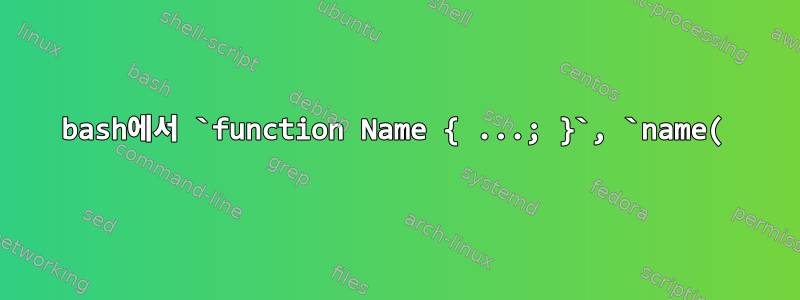%20%7B%20...%20%7D%60%20%EB%B0%8F%20%60function%20name()%20%7B%20...%3B.png)
여러 가지 방법으로 bash 함수를 작성할 수 있습니다.
function JoinStrings {
...;
}
또는
function JoinStrings () {
...;
}
또는
JoinStrings () {
...;
}
이 기능들 사이에 차이점이 있나요? Bash에서 함수를 작성하는 방법이 3가지인 이유는 무엇입니까? (함수를 작성하는 방법이 더 있나요?)
답변1
man bash설명하다:
Shell Function Definitions
A shell function is an object that is called like a simple command and exe‐
cutes a compound command with a new set of positional parameters. Shell
functions are declared as follows:
name () compound-command [redirection]
function name [()] compound-command [redirection]
This defines a function named name. The reserved word function is
optional. If the function reserved word is supplied, the parentheses
are optional. The body of the function is the compound command com‐
pound-command (see Compound Commands above). That command is usually
a list of commands between { and }, but may be any command listed
under Compound Commands above. compound-command is executed whenever
name is specified as the name of a simple command. When in posix
mode, name may not be the name of one of the POSIX special builtins.
Any redirections (see REDIRECTION below) specified when a function is
defined are performed when the function is executed. The exit status
of a function definition is zero unless a syntax error occurs or a
readonly function with the same name already exists. When executed,
the exit status of a function is the exit status of the last command
executed in the body. (See FUNCTIONS below.)
간단히 말해서 차이가 없습니다.


